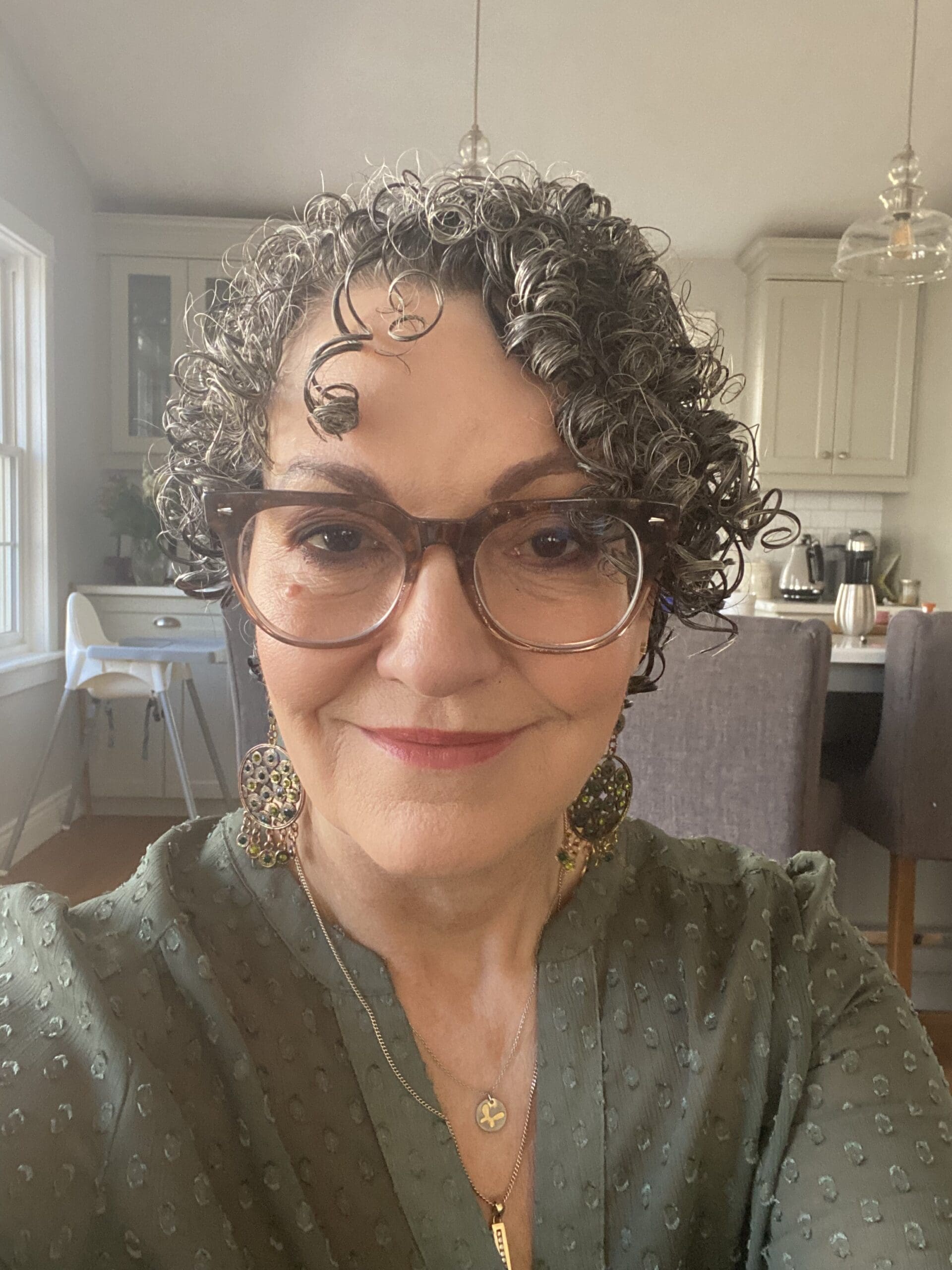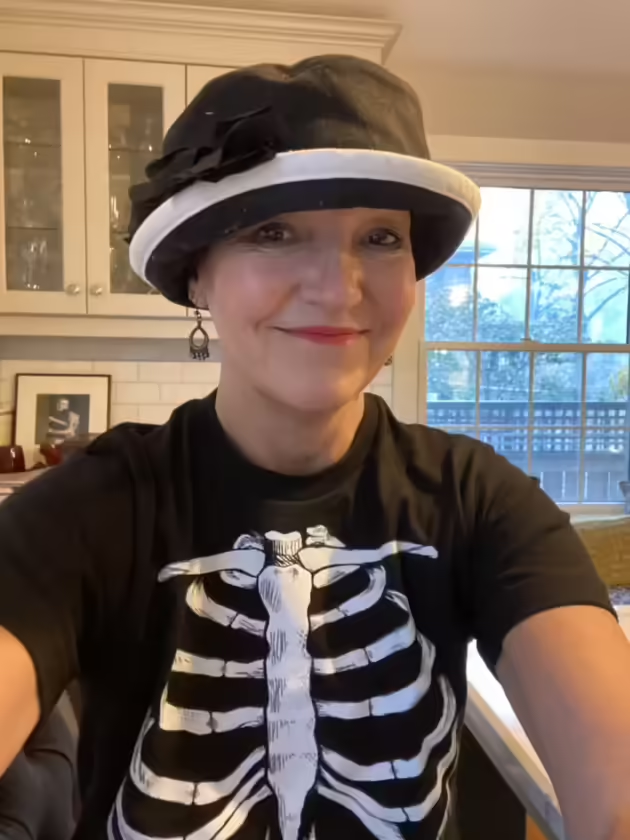I call it chemo brain because that’s the phrase most people use — but clinicians often call it cancer-related cognitive impairment (CRCI). Whatever the label, it’s real: the fuzzy memory, the words that won’t come, the focus that evaporates halfway through a sentence. I’ve lived with this—brain fog, trouble with word retrieval, ongoing fatigue, and a focus that feels like my childhood (and adult) ADD turned up to eleven—and I want to walk you through what we know, what helps, and how to live with it day to day.
What is chemo brain? (and who gets it)
Chemo brain describes changes in thinking that people with cancer can experience during or after treatment. Symptoms often include memory slips, trouble concentrating, slowed processing, problems with multitasking or planning, and word-finding difficulties. These changes can start before treatment for some people, appear during chemotherapy, and — for a subset — linger for months or years after treatment ends.
How common is it? Estimates vary by study and by how you measure it, but many people report cognitive symptoms during treatment (some reports say up to about 75%) and a smaller but significant group continue to have problems after treatment (estimates often around 25–35% in older reviews). Newer systematic reviews continue to refine those numbers and explore who’s at highest risk.
What causes chemo brain? (short answer: it’s complicated)
There isn’t a single, agreed-upon cause. The leading idea is that CRCI is multifactorial: chemotherapy drugs can have direct neurotoxic effects, but so can inflammation, immune system changes, hormonal therapies, radiation when it targets the brain, sleep disruption, anxiety and depression, pain, fatigue, and preexisting conditions (including learning differences like ADD). In some studies, researchers also see structural and functional brain changes on imaging and cellular studies that suggest chemotherapy and related processes can affect brain circuits.
In short: chemo brain is not “all in your head” and it’s not always just the chemo — it’s many things interacting.
A few recent studies are exploring novel mechanisms — for example, chemotherapy’s effect on the brain’s drainage systems or meningeal lymphatics and molecular pathways that affect brain aging — but those lines of research are early and not yet treatments. Still, they matter because they point to new ways we might prevent or treat CRCI down the road.
How chemo brain feels — my experience (and why it matters to name it)
For me, it wasn’t one dramatic moment; it was a slow accumulation of small, sharp annoyances that piled up. I would reach for a word, and it felt like it fell through a grate. I struggled with word labelling, for instance using “brother” instead of “husband.” Sentences that used to come out in a steady stream started sputtering. I’ve always been forgetful but found I would misplace things more, blank on names, lose my train of thought mid-email. The fatigue made everything worse — focus evaporated faster, and my suspected ADD felt like it had been magnified. I could not stay on task. That combo — ongoing fatigue + accentuated attention differences + word retrieval trouble — is stubborn and humiliating at times. Naming it “chemo brain” changes the conversation: it takes away shame and opens the door to practical strategies and medical supports.
How clinicians evaluate chemo brain
I will preface all of this by saying I am not a doctor and cannot offer medical advice. However, if you bring up chemo brain with your care team, clinicians may do a few things. They may screen for reversible causes (sleep problems, thyroid issues, vitamin deficiencies, medication side effects, depression/anxiety). They may review treatments that might contribute to chemo brain and — where available — offer neurocognitive testing or refer you to to neuropsychology. For some patients, imaging is relevant; for others, a focused history plus ruling out treatable contributors is enough before starting supportive strategies. Guidelines and consensus documents increasingly recommend screening and referrals when cognitive symptoms noticeably affect daily life.
If you’re on an aromatase inhibitor (I am on letrozole) or experiencing menopause after breast cancer, bring that up — hormonal shifts and endocrine therapies can affect cognition and sleep, so they’re part of the conversation. (I wrote about managing letrozole side effects and menopause after treatment in other posts.)
Related links you might find helpful:
- The Ultimate Guide to Chemo Curls (for hair/body changes that intersect with identity and fatigue).
- Understanding Aromatase Inhibitors and Their Side Effects (on endocrine therapy and symptoms).
- Coping with Hot Flashes Without Hormones (sleep fragmentation from hot flashes can worsen cognitive symptoms).
(You can find these on AskEllyn—look for posts on chemo-related side effects and survivorship.)
What helps: practical, evidence-based strategies
There’s no single magic pill to solve for chemo brain, but a combination of approaches—medical, behavioral, and lifestyle—can make a big difference. Below I summarize what research supports and strategies I’ve found useful.
1. Rule out treatable causes first
Before assuming symptoms are permanent, ask your clinician to check reversible contributors: thyroid function, vitamin B12 and D, sleep apnea screening, medication reviews (especially benzodiazepines, some pain meds, or sedating antidepressants), and mood disorders. Fixing these can produce big improvements.
2. Cognitive rehabilitation/training
Structured cognitive training, often delivered by neuropsychologists or via validated digital platforms, can improve specific cognitive skills (attention, memory, processing speed) and day-to-day functioning for some people. A growing body of clinical trials supports cognitive rehabilitation as a pragmatic option. Programs that combine strategy training (how to cope) with practice exercises appear most useful. Prior to going into chemo, and worried what cognitive effects I might face I met with a friend who is an occupational therapist for some advice.
3. Exercise — for your brain as much as your body
Regular aerobic exercise and resistance training show benefit for cognitive function in cancer survivors. Exercise reduces inflammation, improves sleep and mood, and supports brain health — and it’s one of the most actionable things you can do today. Even short, regular walks can help when fatigue is severe. As you’ll know from reading this blog, I’m a big fan of moving one’s body.
4. Prioritize sleep and treat sleep problems
Poor sleep makes everything worse. Address insomnia, hot flashes, and possible sleep apnea. Sleep hygiene (regular bedtime, dark room, limited screens before bed) matters, but sometimes a medical approach is needed — that might include melatonin, CBT for insomnia, or treatment for sleep apnea can be game changers. I also find that a sleep meditation at bedtime can help settle my mood and nervous system before falling asleep. Again, talk to your care team before taking any supplements!
5. Manage stress, anxiety, and depression
Emotion matters to cognition. Mindfulness, therapy, relaxation techniques, and sometimes pharmacologic treatment for mood can improve cognitive symptoms by reducing cognitive load and hypervigilance. Group support and peer communities (as well as talking to AskEllyn!) can also reduce isolation and normalize the experience.
6. Use practical strategies and compensatory tools
- Externalize memory: use calendars, checklists, labels, and voice memos.
- Single-tasking beats multitasking; block time for focused work.
- Use “brain cues” — short written prompts to restart a task.
- Simplify decisions: reduce choices where possible (meal plans, outfit planners).
These strategies are low-risk and high-reward; I use them daily.
7. Consider medications selectively
There is no FDA-approved drug specifically for chemo brain. Some clinicians prescribe stimulants (used for ADHD) or modafinil off-label for severe cases of attention or fatigue, but results are mixed and require careful monitoring. Please discuss risks/benefits with your provider.
Living with chemo brain: daily habits that helped me
- One-thing lists. Each morning I pick one or two nonnegotiables. Smaller wins build confidence.
- Set up frictionless systems. My keys have a place in the house (sometimes!). My phone calendar pings are scheduled—if it doesn’t remind me, I’ll forget.
- Batch tasks. Grocery shopping, admin emails, and heavy creative work all go in separate blocks so my brain isn’t switching costs all day.
- Say the hard thing out loud. I tell friends, family and collaborators “I may be a little slow on word retrieval or forget your name momentarily—please be patient.” It takes the sting out of the moment.
- Rest is a strategy. I schedule short breaks before I need them. Fatigue is a fuel gauge; when it dips, so does cognition.
- Leverage my strengths. When writing, I first talk things out (voice memo) and then transcribe; speech often unlocks words faster.
These are small changes that add up. Some days are still hard, and that’s okay.
When to seek more help (and what to ask for)
If cognitive problems interfere with work, driving, complex decision-making, or independent living, ask for a referral to neuropsychology or a cognitive rehabilitation specialist. Request a baseline cognitive assessment if possible—this helps track change over time and tailor interventions. If symptoms are sudden, worsening quickly, or accompanied by neurological signs (seizures, focal weakness, severe headaches), seek urgent medical evaluation.
What the research community is doing (and what it means for you)
Research has shifted from skepticism to active investigation. Clinicians and scientists are exploring biomarkers, imaging changes, exercise and cognitive training interventions, drug candidates, and the role of inflammation and brain clearance systems. Clinical trials and collaborative initiatives (including NCI planning meetings and ASCO-linked guidance) aim to make diagnosis clearer and therapies more evidence-based. For patients, that means better screening and more intervention options are likely to appear in coming years — but it also means we should stay informed and advocate for symptom recognition.
Evidence & resources (trusted places to learn more)
Patient-facing pages:
- American Cancer Society — Changes in Memory, Thinking, and Focus (Chemo Brain).
- National Cancer Institute — Memory or Concentration Problems and Cancer Treatment and research updates on mechanisms.
- Mayo Clinic — overview of chemo brain symptoms and causes.
Selected research & reviews:
How AskEllyn can help (practical next steps)
If you use AskEllyn, tell her about your brain fog, trouble with word retrieval, fatigue, or attention changes — she’s trained to listen without judgment and offer practical coping tips, scheduling tricks, and gentle reminders to share with your care team. You’ll also find lots of good content in our related posts, as well as pieces about menopause and sleep that intersect with cognitive health. (Find AskEllyn at https://askellyn.ai/chat.)
Final notes — you are not broken, you are human
Chemo brain can feel like a loss of the person you used to be. But remember: many people recover significant cognitive function over time, and there are concrete, evidence-based things we can try now to make daily life easier. Naming the problem, asking for help, and building systems and supports are powerful steps. If you want, I can draft a one-page checklist you can print and bring to your oncologist, or a weeklong plan to rebuild focus and energy after treatment — tell me which would help and I’ll write it for you in AskEllyn’s voice.




